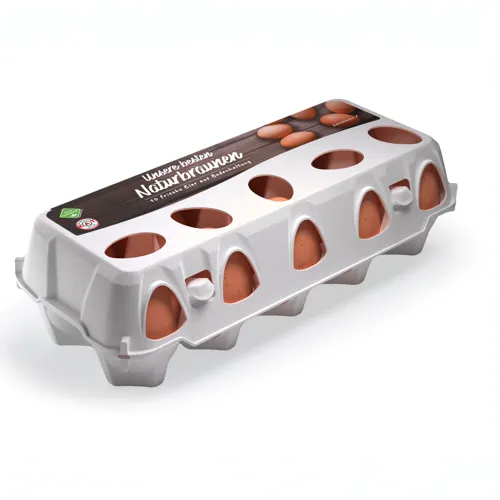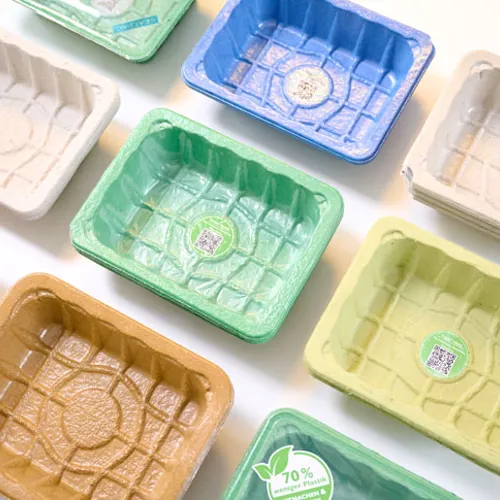- News
- Know your impact

Know your impact
Hartmann shares Product Carbon Footprints to help customers cut CO₂.
What’s the true climate cost of packaging? Hartmann now provides clear Product Carbon Footprints for every solution, helping customers cut CO₂ and reach sustainability goals. Curious how it works and what it means for your business? Read the full story below.


At Hartmann, sustainability is a central pillar of our business – from the responsible use of resources to leading the world in moulded fibre egg packaging, the health of the environment has always been as important to us as the health of our bottom line.
That’s why we joined the United Nations Global Compact in 2003, signed the United Nations “Caring for Climate” Agreement in 2007, and in 2023, we committed to the Science-Based Targets initiative (SBTi) and halving our CO₂e emissions by 2030. Science-based targets set out a structured roadmap for a company to reduce its greenhouse gas (GHG) emissions in line with the Paris Agreement goals – showing them how much they need to cut and how quickly – in order to help mitigate the worst effects of climate change.
As part of this commitment, we’re now pledging to share our Product Carbon Footprint figures with our customers soon. This will ensure greater transparency around the CO₂ emissions related to our products and enable us to stay true to our core sustainability values of being accurate, responsible, and transparent.
Why do product carbon footprints matter?
They help customers make informed choices: Understanding a product’s carbon footprint helps you choose products that align with your values and reduce your environmental impact.
They support sustainability: By opting for products with lower carbon footprints, you encourage more companies to adopt eco-friendly practices, driving positive change in the marketplace.
They increase transparency and trust: Knowing the carbon impact of our products builds a closer understanding of our values and increases consumer confidence in us.
They contribute to global goals: Every low-carbon choice helps combat climate change and supports global sustainability goals like the Paris Agreement.
How are we going to proceed?
Hartmann’s new Product Carbon Footprint figures will be calculated by a qualified external provider in accordance with:
The Product Life Cycle Accounting and Reporting Standard: The GHG Protocol is the established framework for measuring and reporting greenhouse gas (GHG) emissions. The Product Standard within the GHG Protocol sets out how companies should calculate the emissions linked with products throughout their lifecycle to ensure greater consistency and transparency.
ISO Standard (ISO 14067): Our external PCF provider works with and follows ISO 14067 within the carbon accounting framework, and the carbon accounting portion of our PCF figures will be done in accordance with this standard. ISO 14067 specifically focuses on how each product’s carbon footprint is calculated, laying out guidelines on measuring and reporting greenhouse gas emissions throughout the product lifecycle.
The PACT Pathfinder Framework: In an industry-driven initiative, the methods used to calculate Product Carbon Footprints have been standardised into the PACT (Pathfinder Framework) to make them more consistent and meaningful.
Why is this important?
Understanding a product's carbon footprint helps us take purposeful steps towards reducing emissions and enables the customer to make informed choices. Our commitment to transparent and reliable reporting is firmly rooted in internationally recognised standards and frameworks. This forms a solid foundation for us not only to strive for a more sustainable future but to benchmark our performance and ensure that we remain in the vanguard.

Related News

Fresh look for brown eggs
Columbus Frischei chooses Plus View™ for standout shelf appeal and eco-conscious packaging.

Smart switch with FiberWise™
Hartmann’s fibre trays make sustainability easy for producers and consumers alike.

And the Oscar goes to ...
Hartmann Hungary wins top award for innovative wellbeing and people-first culture.

FiberWise™
The smart fibre tray that slashes plastic, fits any line and wins with consumers.

